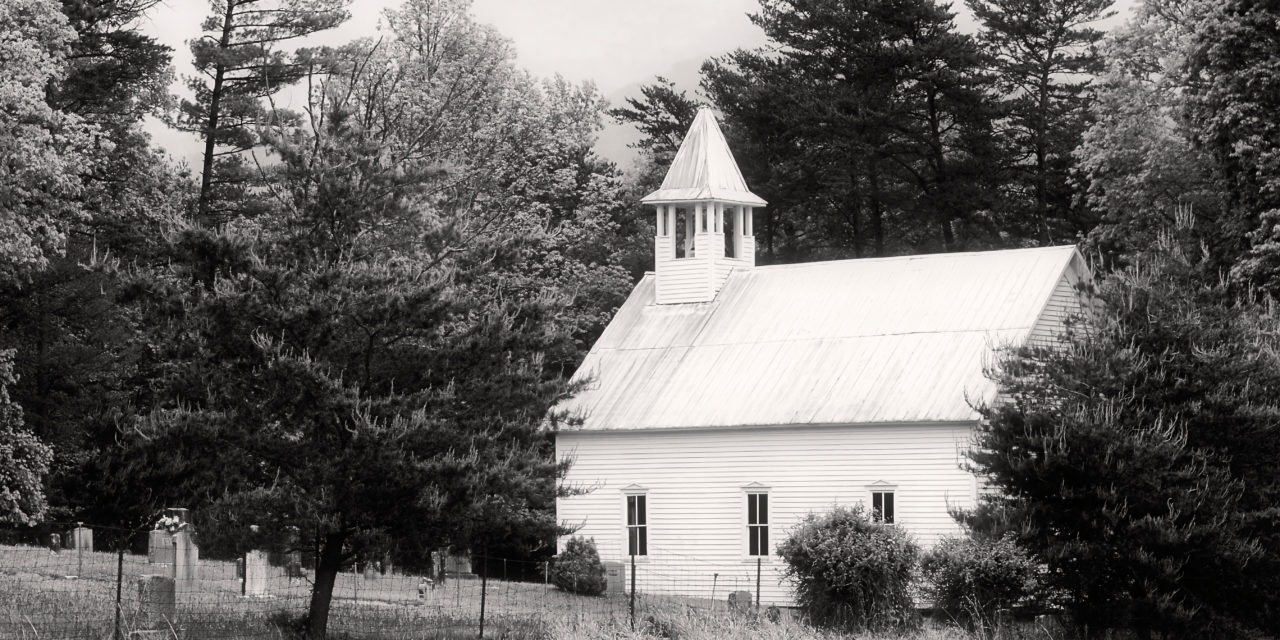A Twitter thread from Cincinnati pastor Michael Clary is gaining attention, as he publicly repented of his condescending attitude toward “conservative, uneducated, backwoods fundies who still read the KJV.”
Clary underwent a change of heart, as he realized that his “spirit of elitism” was toward his own forebears – like his grandfather and great grandfather who were country preachers in Appalachia, in “the hills of West Virginia.” He began to see that he was “standing on the shoulders of giants,” men who “stayed true to the Lord and his calling” for decades.
Clary, who is a church planter and the pastor of Christ the King Church, starts out with these tweets that describe his condescending sense of superiority because of his education and “ministry success”:
There once was a certain kind of evangelical Christian I felt free to make fun of. I was pastoring a fast growing church in an urban environment, and a spirit of elitism had infected us. No one would correct me on it because they made fun of them too.
— Michael Clary (@dmichaelclary) December 15, 2022
The people we felt free to mock were conservative, uneducated, backwoods fundies who still read the KJV. They lacked the theological sophistication and cultural insight I had acquired while doing campus ministry and studying at seminary.
— Michael Clary (@dmichaelclary) December 15, 2022
Though he came from the hills of West Virginia, “Appalachian, born and bred,” Clary felt he “had moved on” and “was better than them.” He wrote, “I was more learned and cultured. I had ‘seen the world’ and they hadn’t.”
Clary’s heart began to change, however, as he realized the character and scriptural depth of his grandfather:
But then it began to dawn on me: I was standing on the shoulders of giants. My grandfather was one of those country preachers. His provided for his family by working a physically demanding job in a steel mill his whole life. His family was poor, but he did what needed to be done.
— Michael Clary (@dmichaelclary) December 15, 2022
He had only received a 6th grade education. He didn't know how to read very well. He listened to the KJV bible on audio cassette on his 45 minute commutes to work. Up and back, every day, listening to the Bible. King James! Scripture got under his skin.
— Michael Clary (@dmichaelclary) December 15, 2022
Similarly, he describes the commitment and endurance of his great grandfather:
My great-grandfather was the same way. He only received a 3rd grade education. He planted a church deep in the hills of WV and built a church building for it on his property. He ministered there for many years, preaching from his KJV Bible.
— Michael Clary (@dmichaelclary) December 15, 2022
He lived to be 102 years old and was healthy and energetic up to the very end. In his 90s, he would take fruit baskets to the "shut ins" of his church who were much younger than him. He married his wife she was 14. He remained faithful to her and they enjoyed 74 years together.
— Michael Clary (@dmichaelclary) December 15, 2022
Clary saw the faithfulness, generosity, commitment to God’s people, and love for Scripture that was deeply rooted in these men. He writes:
So I repented. I repented of my arrogance. I repented of my self-righteous attitude towards “that old time religion” that sustained my grandparents who had so much less than me. I repented of looking down on faithful, older Christians who had passed on a legacy to me.
How easy it is to believe we’re somehow superior to the believers who came before us, viewing them as narrow or parochial or illiberal or unprogressive.
C.S. Lewis called this “chronological snobbery,” which he defined as “the uncritical acceptance of the intellectual climate common to our own age and the assumption that whatever has gone out of date is on that account discredited.” Lewis’ remedy was “to keep the clean sea breeze of the centuries blowing through our minds.”
For Lewis, “This can be done only by reading old books.” But surely another way is to listen to those older than us, consider their lives and learn from them.
Clary, for example, heard a story about his great grandfather from his mother:
When he was filling out paperwork or writing something and didn’t know how to spell a word, he would remember where that word was in his KJV Bible, then look it up to see how it was spelled.
What a deep knowledge of Scripture and a desire to grow and learn.
It’s unwise to have contempt for our fathers and grandfathers (just as it’s unwise to have disdain for the next generation – those “young whippersnappers”). Scripture commands us to “honor your father and mother,” and the Apostle Paul reminds us that “this is the first command with a promise.” We are admonished to demonstrate this respect so “that it may go well with you and that you may live long in the land.”
Such pride and arrogance is not just bad practice, but also a sin, which Proverbs reminds us is “an abomination to the Lord.” But it seems every generation – I include myself – is afflicted with this disorder, an unwarranted sense of superiority toward those who’ve gone before us.
Kudos to Clary for modeling humility and repentance, fturning from pride and showing a better way – respect and gratitude for our forebears.
His whole thread is well worth reading and thinking about.
Photo from Shutterstock.






